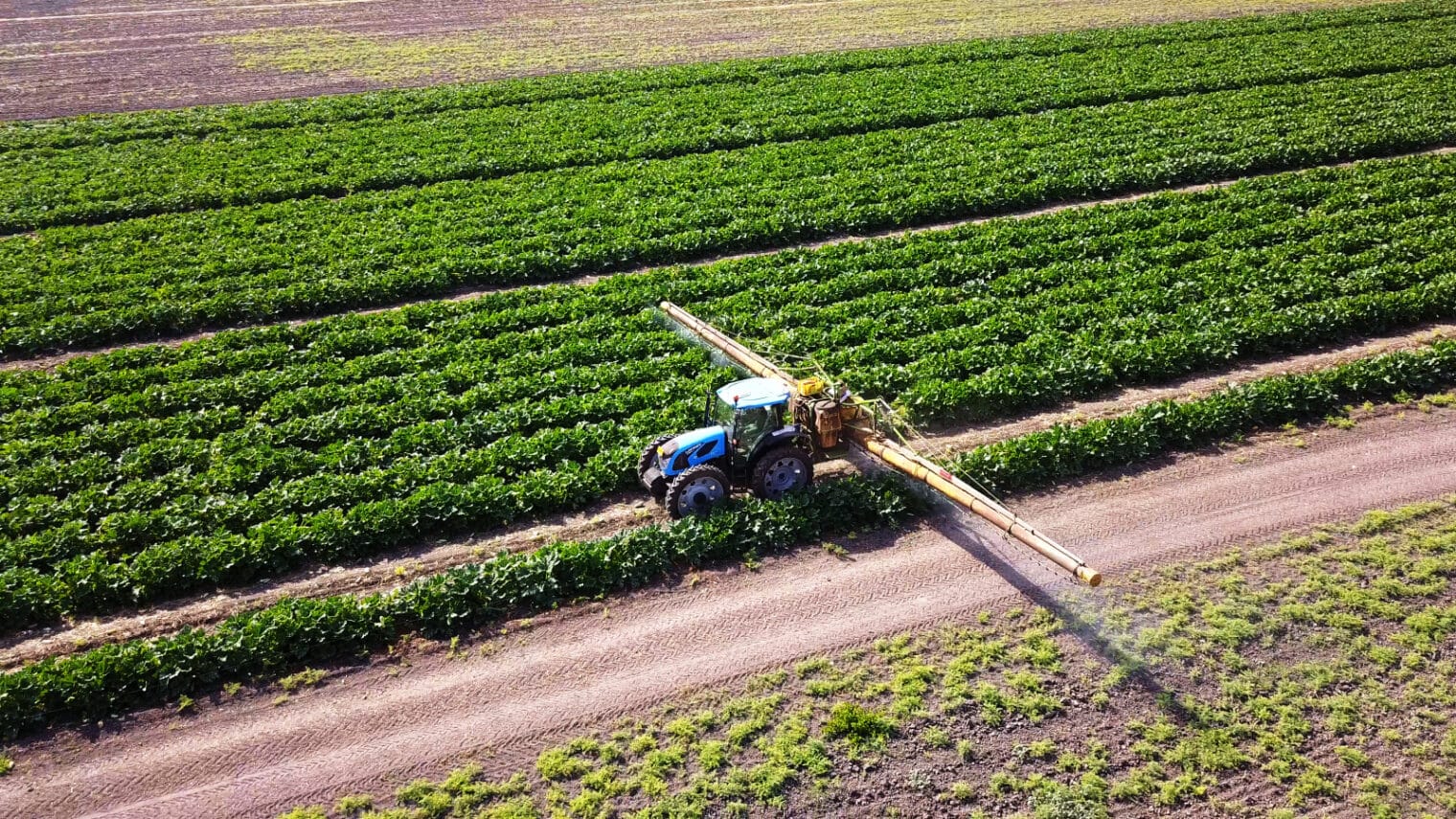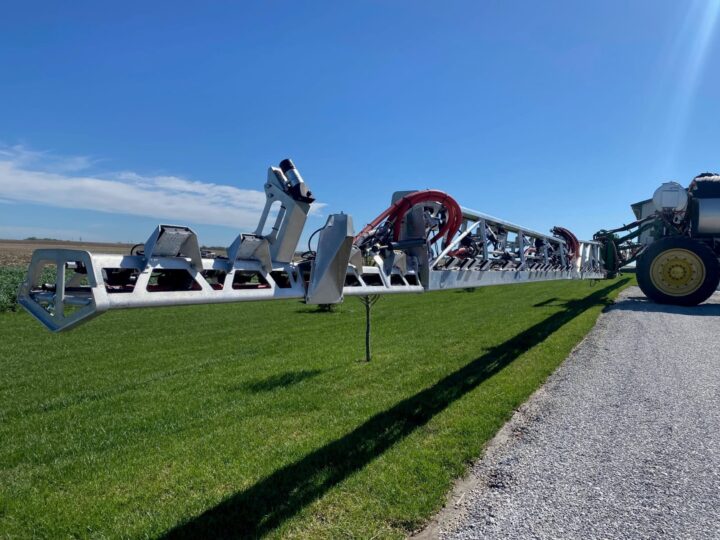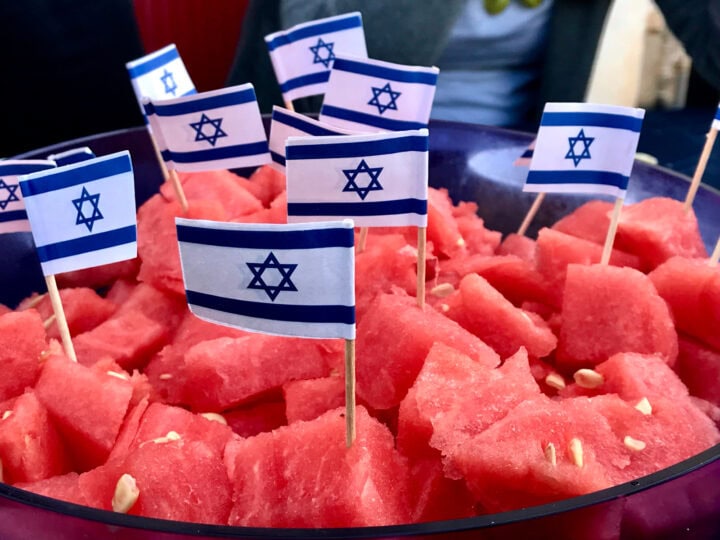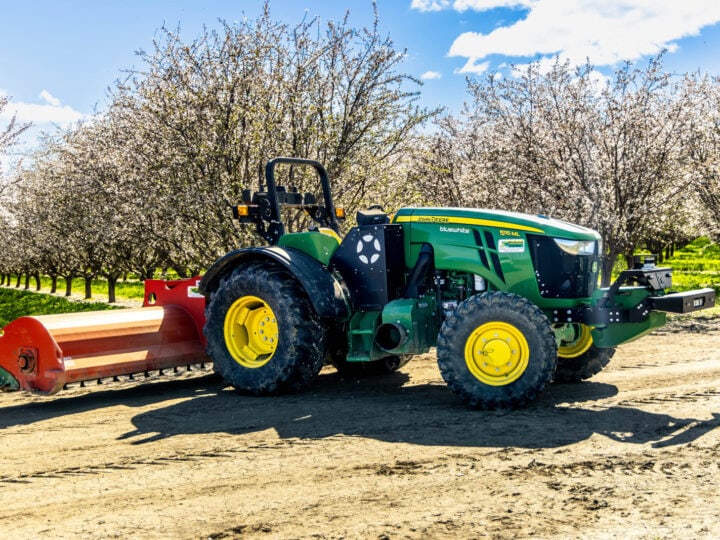It’s no secret that pesticides are not great news for either the environment or our own personal health, with large amounts of toxic chemicals filtrating into the soil, water and, of course, our food.
Yet their use has been steadily on the rise.
According to a recent United Nations report, the combined global sales value of pesticides and fertilizers continues to grow at a rate of 4.1 percent per year, and in the United States alone will reach $309 billion dollars’ worth by 2025.
Luckily, there is growing comprehension that while demand for crops, food and goods is rising due to an increase in the world’s population and in globalization, we can’t keep putting hazardous materials into the environment.
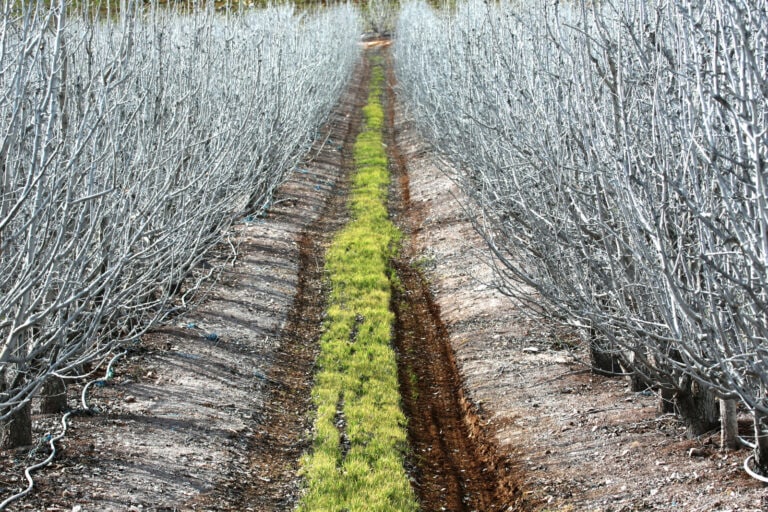
According to Alon Turkaspa, the Climate, Agriculture and Food Sector Lead at Startup Nation Central, some 30 startups were established in Israel over the last 10 years that aim to solve this problem. Around 20 of them remain active.
“Israel is like this amazing crossroads where different continents meet, making it a super interesting spot for figuring out how to tackle some really tricky issues with pests and pesticides,” he notes.
“Think of it as this big, natural lab where all these challenges come together. Plus, with pests on the rise due to shorter winters, which are speeding up even faster than in Europe, the battle against these little critters is getting tougher every year,” Turkaspa tells ISRAEL21c.
“But here’s the cool part – Israel is also this incredible hub of innovation. It’s like a meeting ground for some of the smartest people around, blending top-notch tech and fresh ideas to come up with new ways to do farming more precisely,” he says.
“This isn’t just about making pesticides better; it’s about rethinking how we grow our food to make it sustainable and future-proof. So, in the middle of all these challenges, Israel is showing the world how to turn adversity into opportunity, using creativity and tech-smarts to keep our food supplies safe and sound.”
Reducing pesticide use in agriculture is the common goal shared by these Israeli companies.
BioBee
BioBee Sde Eliyahu is one of the most veteran startups in Israel, established over 30 years ago. The company’s products address a variety of sustainable agriculture issues, such as bee pollination, control of fruit fly populations and plant protection.
In the field of pesticides, BioBee developed a nontoxic biopesticide based on neem oil, extracted from a tree of the same name, which can be used against mildew, mites and various types of flies.
Alta Innovation
Alta Innovation helps reduce harmful pesticide use by improving the way in which herbicides are sprayed and minimizing the amounts used.
The company, founded in 2015, developed an AI-based algorithm that analyzes data gathered from images of orchards or fields captured by drones to detect unwanted weeds or rodents. Then, a drone equipped with Alta technology sprays the affected area in a precise manner, cutting down massively on the amount of chemicals used.
It has already been successfully used, for example in the case of locust outbreak in Ethiopia.
DriftSense
Established in 2019, DriftSense is developing a prediction tool to enable farmers to decide when to apply pesticide to their crops and help them do so in a more efficient and sustainable manner.
Its software calculates factors such as the weather, regulatory data and spraying gear to help farmers make informed decisions, helping them save money and spare the soil from overapplication or incorrect application.
Palm Robotics
Palm Robotics started out by focusing on palm weevil infestation, a problem affecting dates. The solution it developed is based on remote sensors, drones and satellite imagery to closely monitor infestations and provide alerts to farmers.
Established in 2019, Palm Robotics has since branched out to other fruit trees and also enables early detection of pests and diseases using remote sensing and other technologies, helping farmers cut down on the amount of pesticide they use while protecting crop production.
BotanoHealth
Pesticide and fungicide are words immediately associated with harsh and toxic chemicals, but startup BotanoHealth has developed an effective fungicide based on a product likely already occupying your bathroom shelf – thyme essential oil.
The organic solution is nontoxic for plants, animals and humans, and can be applied to avoid multiple types of weeds, powdery mildew, bugs, gnats and spider mites. It requires only a small amount of organic oils, making it cost-effective.
BotanoHealth is marketing the product in the fields of conventional agriculture, cannabis farming and vertical agriculture. Meanwhile, for those interested in keeping the produce in their home spotlessly clean, BotanoHealth also offers a fruit and vegetable organic washing solution.
Greeneye Technology
Despite its environmental and health hazards, spraying crops is often inevitable to reduce risk and ensure crop success. However, instead of blanket spraying whole fields, it is now possible to focus only on areas that need it.
Greeneye Technology has developed a selective spraying system using artificial intelligence to distinguish between weeds and crops, identify weed species and look out for herbicide-resistant ones to ensure that the correct amount of herbicide is applied only when and where needed.
Fungit Biosolutions
Startup Fungit Biosolutions aims to reduce food waste that occurs due to fungal disease and extreme weather conditions by treating crops with fungal microorganism-based biocontrol agents.
These, the company notes, are meant to provide an effective, cost-effective and environmentally friendly alternative to some traditional pesticides and fertilizers.
Fungit Biosolutions, founded in 2022, is located in the southern Bedouin city of Rahat. It is now in the development stage and plans to market its solution by late 2026.
BetterLeaf
Israeli-Ghanian partnership BetterLeaf was established in late 2022 with the aim of harnessing Israeli innovation knowhow and Ghanian knowledge of local medicinal plants to turn the latter into botanical biopesticides.
Biopesticides, the startup notes, are more eco-friendly on a number of levels: they require far less power to produce compared to traditional pesticides; don’t harm the environment or consumers’ health; and, of course, helps cut down on the use of chemical pesticides while maintaining crop and food security.
The company is at the pre-funding stage and is looking for investors to make its product viable by 2025.




